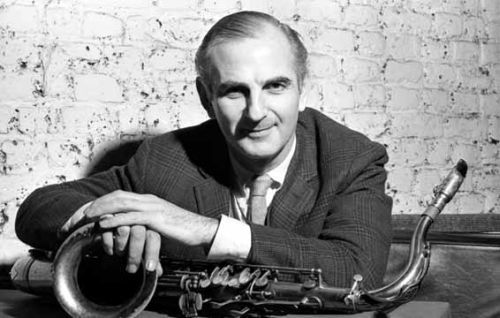Ronnie Scott, tenor saxophonist and owner of the world-famous club he founded, is one of Britain’s most prominent figures in postwar jazz. Born Ronald Schatt on the east side of London, he was a son to Jock Scott (a dance band saxophonist), and his mother. Scott began his journey with a cornet purchased from a junk shop. He then switched to the soprano and finally settled on the tenor saxophone in his teens. At a youth club, he started performing with Tony Crombie, an aspiring drummer, and began the occasional professional gig. Scott began his career as a backing bandleader for Carlo Krahmer’s band. He joined the Ted Heath Big Band in 1945 and was a member of the immensely popular Ted Heath Big Band again the next year. However, changing economics made it increasingly difficult to have big bands and Scott and Tony Crombie traveled to New York City to see the source. Scott would return to New York regularly after signing up to perform with Johnny Dankworth, an alto saxophonist, on the transatlantic ocean liner Queen Mary. Scott was a key figure in the London bop scene. He co-founded Club Eleven in the United Kingdom, which was the first club to be devoted to modern jazz, in late 1948. He developed a lyrical and harmonically complex style during this period. He first supported Jack Parnell as a drummer before forming his own band in 1953. The group of nine musicians formed the Scott band in conjunction with Norman Granz’s Jazz at the Philharmonic tour revue in London. Using arrangements by Jimmy Deuchar as their basis, the Scott band was a significant moment in the history and evolution of British jazz. Scott’s instincts weren’t always sound. In 1955, he assembled a small, but successful, big band. However, the group was disbanded in 1956. Scott was a household name in Britain. He co-founded the Jazz Couriers in 1957 with Tubby Hayes (tenor saxophonist). They rose to greater fame. 1959 saw the end of the Jazz Couriers. Scott was again open to the idea of a London-based jazz club, in keeping with New York’s landmarks. He borrowed money from Pete King, a long-time collaborator, and opened Ronnie Scott’s Club on October 31, 1959. Scott was the co-headliner of the opening night, along with Hayes, Parnell, and it was a promising venue, but it only reached its true critical mass when Zoot Sims, a Scott favourite, performed there. Over the next months, Ronnie Scott’s hosted a number of American tenors, including Stan Getz and Roland Kirk, as well as Sonny Stitt and Ben Webster. The club moved to its current location on Frith Street in late 1965. It would be home to everyone from Ella Fitzgerald and Albert Ayler before the end the decade. While the club took a lot of Scott’s time, he continued to tour with Stan Tracey’s quartet. In the late 1960s, Scott also led an eight-piece band with which he produced some of the most unique and experimental music of all his careers. His namesake club was possibly the most well-known jazz venue in Europe at the time Scott died, on December 23, 1996. Allmusic
